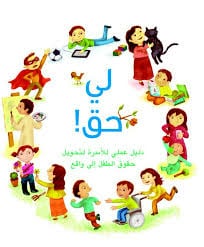Idlib’s Child Protection Network

A facebook post of the campaign's page
Bilal, 14, chose to run away from home rather than continue suffering the daily beatings at the hands of his father.
As well as enduring violence at home in the city of Kiswa, the boy was also forbidden to attend school and forced to work in a blacksmith’s workshop.
“My father forced me to drop out of school two years ago when I was in the fifth grade, although I had the best grades in my class,” Bilal said. “He sent me to the workshop of one of his friends to learn the trade and earn money to help provide for the family.”
“I was beaten up by the workshop owner several times during work hours, after my father had asked him to give me additional work to increase my monthly wages, which I never even saw as my father always took it and spent it,” he added.
“After a few months of hard work, I told my father I did not want to keep working for that man, that I intended to look for another job, and I complained about the mistreatment, exhaustion and pain I was dealing with on a daily basis,” the boy continued. “He forbade me to give up work and beat me, so the only solution I could think of was to run away from home.”
Bilal sought refuge at his aunt’s house but was there for only a day before his father found him and tried to force him to return. After another beating, Bilal managed to escape to nearby Khan al-Shih where for nearly three months he found a home with members of a local military faction.
The teenager now lives in Idlib and no longer has any communication with his family.
“Life here is more comfortable than with my family, after I am done doing my daily tasks I can do whatever I want and go wherever I want,” he said.
Many children in Idlib find themselves vulnerable to violence and abuse, whether because of the effects of the conflict or the behavior of family members. Late last year, a group of young men and women in Idlib Rif founded a child protection body called Aman Social Network (ASN).
ASN awareness officer, Mohammad al-Hassan, said that the group now had 14 members based in the villages of Kensafra, Kfar Haya, Ihsm, Bsamis, Maarata and Kfar Shalaya.
“We launched the network at the beginning of January 2018 and started to document childrens’ rights violations and research the causes, given the absence of monitoring and accountability and the inability to combat the rise in violations due to the current situation, as well as poverty which drives families to stop their children going to school and go to work at an early age,” he said.
Women and girls are particularly vulnerable. When Um Imad’s husband was detained in early 2012, she became the sole breadwinner for their three young children.
“After my husband, who was my only provider, was arrested I was no longer able to afford the household expenses and my daughters’ school fees, so I had to take the girls out of school and we had no choice but to beg on the streets to get some money to be able to get by,” the 34-year-old said.
“After I received some money from a well-wisher I opened a shack to sell vegetables in the town market, where my daughters and I worked in shifts. I saw young men harassing my daughters, verbally or physically, they are barely fifteen years old, but I could not say anything or do anything about it as this was my only source of income and taking any measure against them might lead to the shack closing,” she said.
ASN organises seminars and community workshops for teachers, local councils and other institutions to raise awareness and act against abuse.
Trainees learn about different kinds of violations children may confront, in addition to child protection principles and methods of prevention that aid in abandoning harmful practices.
“Raising awareness is important as it limits the number of violations and I believe it is the right time to conduct such activities,” said Iman as-Sadeq, 32, who works on issues related to opposition factions who pay children sums ranging from 10 to 30 thousand Syrian pounds (60 dollars) to participate in battles.
“It is easy to brainwash children into adopting an ideology, especially an extremist one, then drag them into battles,” she continued, adding that poverty also played an important role.
“Awareness campaigns alone are not enough to address and prevent these violations; it is important to address the financial needs of these children by cooperating with humanitarian and relief organisations to help their families,” as-Sadeq concluded.
